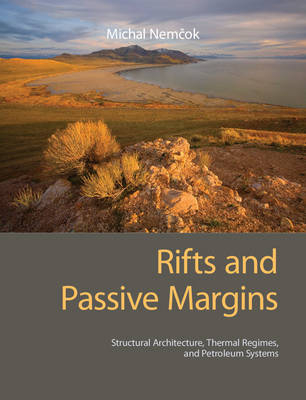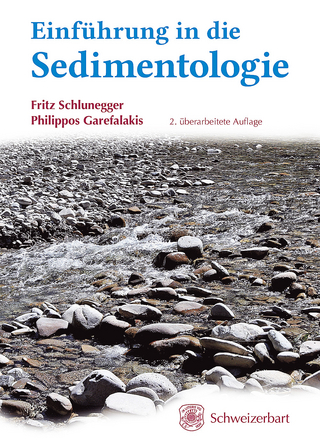
Rifts and Passive Margins
Cambridge University Press (Verlag)
978-1-107-02583-7 (ISBN)
Rifts and passive margins are extremely important for the petroleum industry, as they are areas of high sedimentation and can contain significant oil and gas resources. This book provides a comprehensive understanding of rifts and passive margins as a whole. It synthesises in one volume the existing information devoted to specific aspects of these vitally important hydrocarbon habitats. This collection of state-of-the-art information on the topic facilitates the better use of this knowledge to assess the risks of exploring and operating in these settings and the development of systematic and predictive hydrocarbon screening tools. The book will be invaluable for a broad range of readers, from advanced geology students and researchers to exploration geoscientists to exploration managers exploring for and developing hydrocarbon resources in analogous settings.
Michal Nemčok is a research professor at the Energy and Geoscience Institute at the University of Utah and a visiting professor at the Energy and Geoscience Institute Laboratory at the Geological Institute SAV, Bratislava, Slovak Republic. He has performed structural and hydrocarbon evaluations in numerous rift settings, such as the Pannonian Basin system of the Czech Republic and Slovakia; the Basin and Range of the western United States; the Bristol Channel Basin; the Central Basin, Democratic Republic of Congo; and the Salton Sea region in California. He has also worked in many passive margin settings, such as West India, East India, the eastern United States and Canada, the African margins of the Central Atlantic, the equatorial Atlantic, the Gulf of Mexico, the Guyana-Suriname Basin, Gabon and Cameroon, the Black Sea region and southeastern Brazil. The results of most of these studies have been presented in thirty-two articles published in refereed scientific journals and in two edited books. He is the co-author of Thrustbelts: Structural Architecture, Thermal Regimes and Petroleum Systems (Cambridge, 2005).
1. Basic description of structural styles in rift and passive margin settings, including extension directions and key structural elements; 2. Mechanics of rifting and transition to drift phases; 3. Determination of unstretched continental, thinned continental, proto-oceanic and oceanic crustal boundaries; 4. Determination of timing of rift and continental break-up events; 5. The role of lithospheric composition and compositional variations on evolving rift margin architectural development and on breakup locations; 6. The role of pre-existing anisotropy on structural styles of rifts and passive margins; 7. The role of syn-extensional deposition and erosion on evolving structural styles of rifts and passive margins and the effects of tectonics on deposition and erosional patterns; 8. Fluid flow systems associated with oceanic hot spots, oceanic transforms, continental transforms and rifts; 9. The role of pre-rift heat flow on thermal regimes of rifts and passive margins; 10. The role of structural and stratigraphic architecture on thermal regimes of rifts and passive margins; 11. The role of syn-rift deposition and erosion on thermal regimes of rifts and passive margins; 12. The role of deformation on thermal regimes of rifts and passive margins; 13. The role of fluid flow on thermal regimes of rifts and passive margins; 14. Introduction to hydrocarbons in rift and passive margin settings; 15. Models of source rock distribution, maturation and expulsion in rift and passive margin settings; 16. Models of reservoir quality distribution; 17. Sealing characteristics; 18. Models of hydrocarbon migration; 19. Trapping styles; 20. Hydrocarbon preservation; References; Index.
| Erscheint lt. Verlag | 2.3.2016 |
|---|---|
| Zusatzinfo | 44 Tables, black and white; 8 Halftones, unspecified; 8 Halftones, black and white; 491 Line drawings, black and white |
| Verlagsort | Cambridge |
| Sprache | englisch |
| Maße | 223 x 287 mm |
| Gewicht | 1940 g |
| Themenwelt | Naturwissenschaften ► Geowissenschaften ► Geologie |
| ISBN-10 | 1-107-02583-4 / 1107025834 |
| ISBN-13 | 978-1-107-02583-7 / 9781107025837 |
| Zustand | Neuware |
| Haben Sie eine Frage zum Produkt? |
aus dem Bereich


